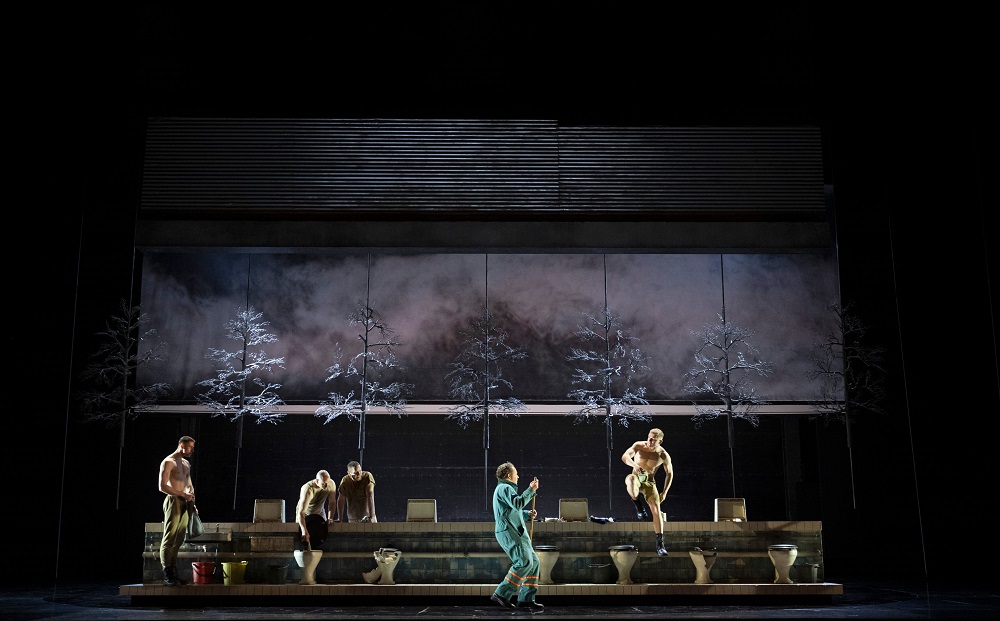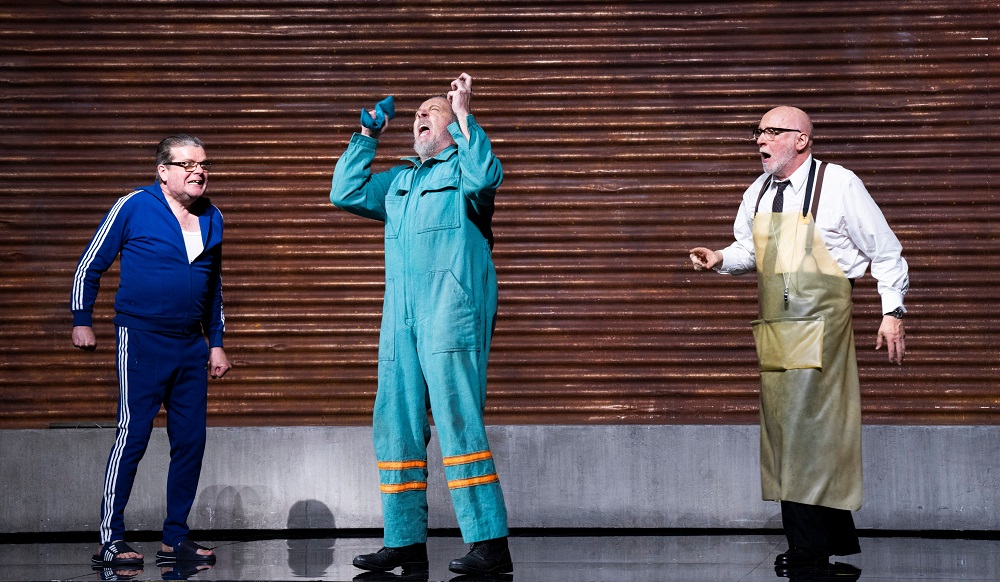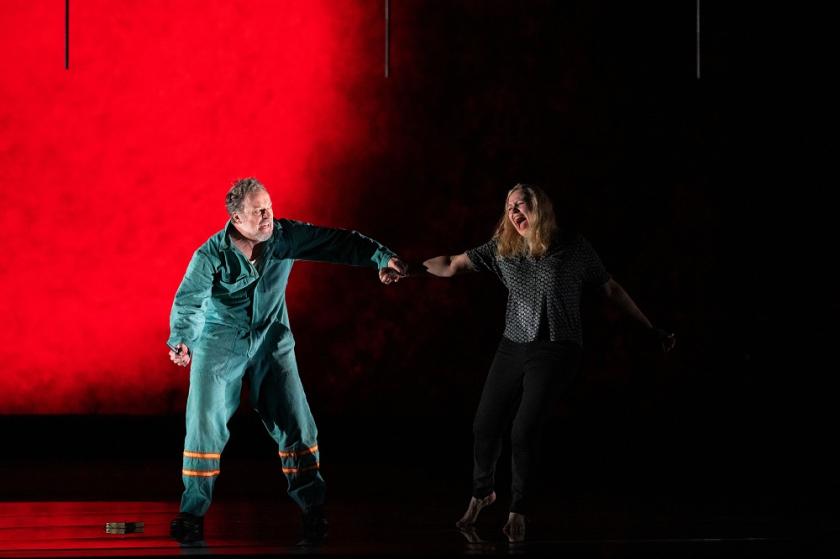If you’re going to be locked in an auditorium with a crazed soldier for over 90 minutes, you need to be overwhelmed by the human frailty and baseness in Büchner’s still-shocking stage play of the late 1830s, the spiderweb beauty of Berg’s 1925 score to match it and a vision in various stage pictures. Director Deborah Warner, conductor Antonio Pappano and set designer Hyemi Shin deliver on all fronts.
Though each of Shin’s stunning images is perfectly composed, and so well lit by Adam Silverman, there’s less unity in Warner’s production than there was in, for example, Richard Jones’s Welsh National Opera stunner. His cue for the look was the army doctor’s question of experimental victim Wozzeck as to whether he’s eaten his beans; Warner’s take at first seems as if it’s indebted to the doctor’s obsession with pissing – as the audience assembles, hunky soldiers are seen performing expected functions in the barracks toilet which it is Wozzeck’s duty to clean.  But that’s for one scene only; diverse tableaux against haunting painted backdrops don’t pin the contemporary look of the costumes down. A billowing cloth descends for accomplished scene changes in silhouette during the interludes of the first and second acts; significantly, it doesn’t figure throughout the third’s heart of darkness (cue black and orange to match the total rigour of the score’s fleshcreep here).
But that’s for one scene only; diverse tableaux against haunting painted backdrops don’t pin the contemporary look of the costumes down. A billowing cloth descends for accomplished scene changes in silhouette during the interludes of the first and second acts; significantly, it doesn’t figure throughout the third’s heart of darkness (cue black and orange to match the total rigour of the score’s fleshcreep here).
The consistency is served up by Christoph Gerhaher’s persecuted visionary, madman, call him what you will (the text suggests his creative capacity has simply been warped by mental illness). Less beautiful of tone than he was when he first amazed us all at the Royal Opera as Wolfram in Wagner’s Tannhäuser, and less poignant in his inwardness than Matthias Goerne in the previous, Keith Warner, production, he lets rip with powerful phrases we don't often hear in the legendary nuances of his song recitals. The unbalance isn’t overdone, the pathos is kept mostly at bay; the horror of Wozzeck's situation is most effective when we see him harried by the neurotic Captain (Peter Hoare) and Doctor (Brindley Sherratt, especially disconcerting in what Warner makes a morgue scene; the three pictured below). You feel he could strike them both dead at a blow if he lashed out.  As a characterisation on its own terms, it couldn’t be bettered. Nor could Anja Kampe’s as Marie, the disoriented mother of Wozzeck’s child. Kampe is full in control of the huge range required, though this Marie’s motivations can be enigmatic. Her yielding to the Drum Major (ringing heroic tenor Clay Hilley) doesn’t have the usual element of coercion or attempted rape which can make it more shocking. But our anxious complicity with the near silences in Act Three certainly help to turn the screw in the semi-darkness.
As a characterisation on its own terms, it couldn’t be bettered. Nor could Anja Kampe’s as Marie, the disoriented mother of Wozzeck’s child. Kampe is full in control of the huge range required, though this Marie’s motivations can be enigmatic. Her yielding to the Drum Major (ringing heroic tenor Clay Hilley) doesn’t have the usual element of coercion or attempted rape which can make it more shocking. But our anxious complicity with the near silences in Act Three certainly help to turn the screw in the semi-darkness.
Hoare’s Captain is exemplary in diction and matching of actions to the gestures of the score. The chorus runs the gamut from aggressive pub songs to spectral sighing in the barracks at night. Pappano used to make this work a thing of beauty, but now it also hits hard, with terrifying bass lines and a spectral quality to the lakeside actions which underlines Berg’s extreme genius in hallucinatory writing. Though the final interlude achieves its supreme power, there’s no catharsis; after the brutal isolation of the orphaned child in the final scene, we stumble out with something nasty stuck in our systems, or at least we should. Certain the best case is made here; but when did Wozzeck ever fail on stage?















Add comment